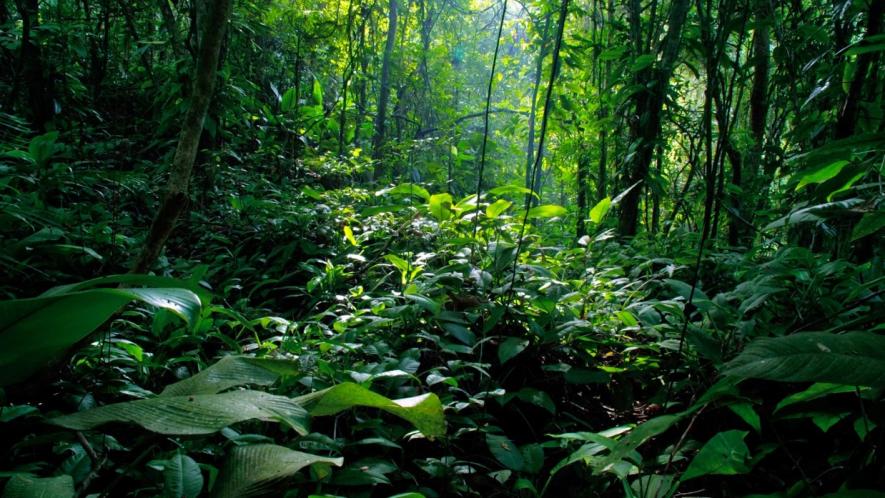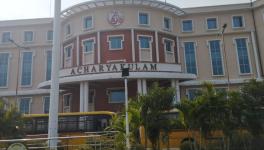Benefit Sharing in the Time of a Public Health Emergency

Representational image.
A total of Rs 100 crores has been allocated through the PM-CARES (Prime Minister’s Citizen Assistance and Relief in Emergency Situations) Fund to support domestic initiatives to develop a vaccine against COVID-19. The Department of Biotechnology (DBT) under the Ministry of Science and Technology (MoST) is the coordinating agency for the Prime Minister’s Task Force set up in April 2020 for COVID-19 vaccine development efforts, under which several initiatives for a vaccine by Indian entities are underway.
In the same month, two seemingly innocuous circulars passed by India’s National Biodiversity Authority (NBA) have gone unnoticed. These raise two broad interrelated questions with respect to the country’s Biological Diversity (BD) Act of 2002:
-
First, do the two COVID-19-related circulars potentially dilute the concept of benefit sharing upon access to India’s bioresources?
-
Second, how is R&D for pandemics such as COVID-19 being regulated under this Act?
What is the legal process for bioresource access?
The development of vaccines, therapeutics and diagnostics requires access to biological material. For Indian entities the State Biodiversity Boards (SBBs) are the gateway for such access, if domestic bioresources are accessed for either research (for example, related to COVID-19) or for commercial utilisation (for example, to develop a marketable medicine). The SBBs have been set up in all states as mandated by the BD Act. Any Indian person, including a company seeking a patent or any other intellectual property right (IPR), needs prior approval from the Chennai-based NBA. All foreign/non-Indian entities, seeking either access to Indian bioresources or an IPR, have to approach the NBA (instead of the SBBs) for approval.
Irrespective of whether the users/accessors are Indian or non-Indian, the benefits accruing from access have to be fairly and equitably shared with all potential “benefit claimers”, such as local communities and biodiversity keepers. This is the internationally recognised concept of access and benefit sharing (ABS).
The Nagoya Protocol, also referred to as the International Regime (IR) on ABS, recognises the importance of genetic resources, not only for food and agriculture, but also for public health. In the development and implementation of its ABS legislation or regulatory requirements, the Nagoya Protocol, in its Article 8 on ‘special considerations’, mandates that countries:
“Pay due regard to cases of present or imminent emergencies that threaten or damage human, animal or plant health, as determined nationally or internationally. Parties may take into consideration the need for expeditious access to genetic resources and expeditious fair and equitable sharing of benefits arising out of the use of such genetic resources, including access to affordable treatments by those in need, especially in developing countries”
India has been a party to the Nagoya Protocol since 2014. India’s ABS regime, in compliance with the Nagoya Protocol, is contained in the Guidelines on Access to Biological Resources and Associated Knowledge and Benefits Sharing Regulations, 2014 issued by the NBA under the BD Act. As per the parent BD Act, if either resources or related knowledge are accessed from an area located under the jurisdiction of a local panchayat, public consultation is a must. The BD Act provides for setting up of a Biodiversity Management Committee (BMC) in every village panchayat and urban ward to make such consultation possible. The BMC has been empowered by the BD Act to charge a fee for access of bioresources from their areas.
What are the two COVID-19-related circulars?
In the early days of the countrywide lockdown imposed due to the pandemic, the NBA issued two circulars to accelerate permissions for bioresources to develop drugs and vaccines to contain the COVID-19 outbreak. The intent of these circulars needs to be examined closely to determine how access will be regulated during a public health emergency. It is to be seen if facilitated access allows pharma companies to work around the legal obligation for benefit sharing, in case any research leads to a commercial product.
On April 3, 2020, during the first phase of the lockdown, the NBA issued circular No. NBA/Chairman/Misc/2020-21 which responds to the global urgency requiring countries to support medical research for development of diagnostics, vaccines, novel therapeutics and re-purposing of drugs for this novel coronavirus. The circular allows for all applications of non-Indian entities to be processed within five days. Another circular issued on the same day extends the time limit to enter into an (ABS) agreement with the NBA during the lockdown period. This means the terms and conditions of access can be set after the access is approved.
Neither the BD Act, nor the 2014 ABS Regulations issued under it, provide a clear time frame within which the entire process is to be completed. A new set of draft Guidelines for ABS, issued for public comments last year, proposed that access applications should be processed within 45 days. However, the April 3 circular, issued during the COVID-19 pandemic, specifies a quick five-day turnaround time for processing the access application. The circular is silent on benefit sharing.
The speed may seem justifiable, since the world needs research to be able to develop possible cures for the pandemic sooner than later. But what about benefit sharing? The Nagoya Protocol lists out that:
“research directed towards priority needs, such as health and food security, taking into account domestic uses of genetic resources in the Party providing genetic resources”
can be one form of non-monetary benefit.
India’s ABS Realities and COVID-19 Research
Regulation 13 of India’s ABS Regulations of 2014 requires any government institution that intends to send biological resources outside India for urgent studies, to avert emergencies like epidemics, etc., to apply to the NBA for clearance through the prescribed Form B. The Form has an express undertaking requiring the accessor-applicant not to put the material to commercial use without the approval of the NBA. This application is to be processed by the NBA within a period of 45 days from the date of receipt of the application.
Regarding Indian entities, Section 7 of the BD Act requires them to intimate SBBs for access and when allowed to do so, they must also share benefits that might accrue. In June 2020, Baba Ramdev’s herbal medicine company, Patanjali Ayurved of Uttarakhand, in collaboration with the private National Institute of Medical Sciences and Research in Jaipur, launched Coronil tablet and Swasari Vati medicines, claiming it could cure COVID-19. The claims were subsequently withdrawn. Irrespective of whether the medicines were cures or just immunity-boosting tablets, the question that needs to be asked is whether either of the developers paid any access fees to the SBB.
Biological resources constitute the main ingredient and raw materials in the manufacture of Ayurvedic and nutraceutical products. In the past, Ramdev’s Divya Pharmacy has strongly resisted any ABS obligations. In 2018, the High Court of Uttarakhand ruled against Divya Pharmacy, upholding the directions of the Uttarakhand Biodiversity Board (UBB) which require the company to pay a fair and equitable benefit sharing (FEBS) amount due to the SBB and the local Biodiversity Management Committees (BMC). This judgment legally settled the point that Indian companies are also liable to incur a benefit sharing cost. The Indian industry has continued to resist benefit sharing, calling it a ‘double tax’.
Normalising Benefit Sharing
The NBA circulars for COVID-19 research approvals and agreements have two clear implications for the ABS processes.
First, an impact assessment and consultation with local BMCs seems to be done away with. The five-day turnaround time makes both these unviable. This fast-track access to Indian bioresources for COVID-19 research can be justified only if it, in return, guarantees the benefit of assured and affordable medicines as per the needs of the country. As laid down in the IR on ABS, expeditious access ought to also result in expeditious FEBS.
Second, it creates a situation of differential treatment for Indian research entities and companies, in comparison with their foreign counterparts. The regulation of access in the case of COVID-19 could also set a precedent for future pandemics. If the intent is to make India self-reliant, then domestic R&D has to be supported – but not sans the ethic of benefit sharing.
If biodiversity-rich provider countries like India do not insist on compliance with their domestic ABS Regulations, the COVID-19 exemptions will go down as another instance that reads down, rather than helps realise a working ABS system in India. Sharing of benefits has to be made the new normal in a post-COVID world.
The authors are independent legal researchers and jointly coordinate BioDWatch, a list serve with updates on the implementation of India’s biodiversity law.
Get the latest reports & analysis with people's perspective on Protests, movements & deep analytical videos, discussions of the current affairs in your Telegram app. Subscribe to NewsClick's Telegram channel & get Real-Time updates on stories, as they get published on our website.
























